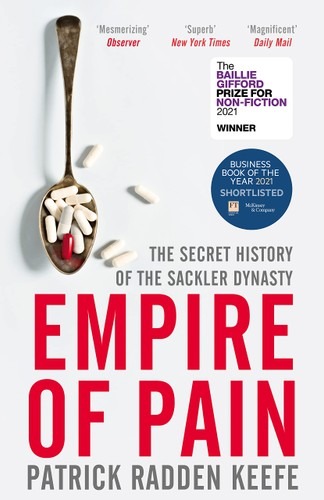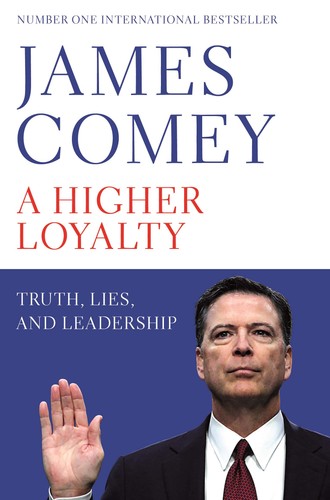Right Kind of Wrong: Why Learning to Fail Can Teach Us to Thrive
3.900,00 د.ج
We All Fail Sometimes. Now, A World-leading Harvard Professor Reveals How These Failures Can Lead Us To Happier, More Successful Lives – Provided We Know How To Learn From Them. We Used To Think Of Failure As A Problem, To Be Avoided At All Costs. Now, We’re Often Told That Failure Is Desirable – That We Must ‘fail Fast, Fail Often’. The Trouble Is, Neither Approach Distinguishes The Good Failures From The Bad. As A Result, We Miss The Opportunity To Fail Well. Here, Amy Edmondson – The World’s Most Influential Organisational Psychologist – Reveals How We Get Failure Wrong, And How To Get It Right. She Draws On A Lifetime’s Research Into The Science Of ‘psychological Safety’ To Show That The Most Successful Cultures Are Those In Which You Can Fail Openly, Without Your Mistakes Being Held Against You. She Introduces The Three Archetypes Of Failure – Simple, Complex And Intelligent – And Explains How To Harness The Revolutionary Potential Of The Good Ones (and Eliminate The Bad). And She Tells Vivid Stories Ranging From The History Of Open Heart Surgery To The Columbia Space Shuttle Disaster, All To Ask A Simple, Provocative Question: What If It Is Only By Learning To Fail That We Can Hope To Truly Succeed?
We All Fail Sometimes. Now, A World-leading Harvard Professor Reveals How These Failures Can Lead Us To Happier, More Successful Lives – Provided We Know How To Learn From Them. We Used To Think Of Failure As A Problem, To Be Avoided At All Costs. Now, We’re Often Told That Failure Is Desirable – That We Must ‘fail Fast, Fail Often’. The Trouble Is, Neither Approach Distinguishes The Good Failures From The Bad. As A Result, We Miss The Opportunity To Fail Well. Here, Amy Edmondson – The World’s Most Influential Organisational Psychologist – Reveals How We Get Failure Wrong, And How To Get It Right. She Draws On A Lifetime’s Research Into The Science Of ‘psychological Safety’ To Show That The Most Successful Cultures Are Those In Which You Can Fail Openly, Without Your Mistakes Being Held Against You. She Introduces The Three Archetypes Of Failure – Simple, Complex And Intelligent – And Explains How To Harness The Revolutionary Potential Of The Good Ones (and Eliminate The Bad). And She Tells Vivid Stories Ranging From The History Of Open Heart Surgery To The Columbia Space Shuttle Disaster, All To Ask A Simple, Provocative Question: What If It Is Only By Learning To Fail That We Can Hope To Truly Succeed?
| Editeur |
|---|
Produits similaires
The Uninhabitable Earth: A Story of the Future
'An epoch-defining book' Matt Haig
'If you read just one work of non-fiction this year, it should probably be this' David Sexton, Evening Standard
It is worse, much worse, than you think.
The slowness of climate change is a fairy tale, perhaps as pernicious as the one that says it isn't happening at all, and if your anxiety about it is dominated by fears of sea-level rise, you are barely scratching the surface of what terrors are possible, even within the lifetime of a teenager today.
Over the past decades, the term "Anthropocene" has climbed into the popular imagination - a name given to the geologic era we live in now, one defined by human intervention in the life of the planet. But however sanguine you might be about the proposition that we have ravaged the natural world, which we surely have, it is another thing entirely to consider the possibility that we have only provoked it, engineering first in ignorance and then in denial a climate system that will now go to war with us for many centuries, perhaps until it destroys us. In the meantime, it will remake us, transforming every aspect of the way we live-the planet no longer nurturing a dream of abundance, but a living nightmare.
The Future of Geography
the new frontier, a wild and lawless place. It is already central to communication, economics, military strategy and international relations on Earth. Now, it is the latest arena for human exploration, exploitation – and, possibly, conquest. We’re heading up and out, and we’re taking our power struggles with us. China, the USA and Russia are leading the way.
From physical territory and resources to satellites, weaponry and strategic choke points, geopolitics is as important in the skies above us as it is down below. If you’ve ever wondered if humans are going back to the Moon, who will benefit from exploration or what space wars might look like, the answers are here.
With all the insight and wit that have made Tim Marshall the UK’s most popular writer on geopolitics, this gripping book shows how we got here and where we’re going, covering great-power rivalry; technology; commerce; combat in space; and what it means for all of us down here on Earth. This is essential reading on power, politics and the future of humanity.
In Cold Blood
An alternate cover of this ISBN can be found here.
An Anthropologist on Mars
A Higher Loyalty: Truth, Lies, and Leadership
Ikigai: The Japanese secret to a long and happy life
The 48 Laws Of Power
Some laws teach the need for prudence ("Law 1: Never Outshine the Master"), the virtue of stealth ("Law 3: Conceal Your Intentions"), and many demand the total absence of mercy ("Law 15: Crush Your Enemy Totally"), but like it or not, all have applications in real life.
Illustrated through the tactics of Queen Elizabeth I, Henry Kissinger, P. T. Barnum, and other famous figures who have wielded--or been victimized by--power, these laws will fascinate any reader interested in gaining, observing, or defending against ultimate control.










